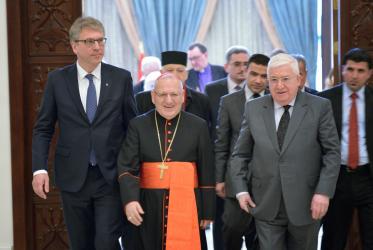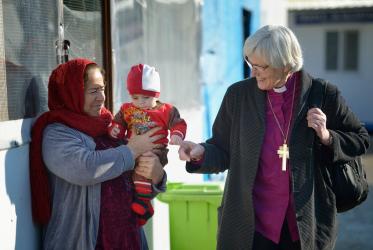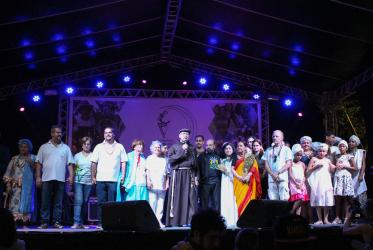Displaying 81 - 100 of 255
“When everybody is building walls, the church can build bridges”
30 January 2017
Churches in Norway and Pakistan break new ecumenical ground
26 January 2017
“We can’t go back as long as we know we are not secure”
26 January 2017
‘No Christmas bells in Mosul’ for a third year, says Assyrian priest
14 December 2016
In Syria and Iraq, minorities must come out of the darkness
28 November 2016
Out of the darkness
28 November 2016
Paralyzed by shock
28 November 2016
Driven out
28 November 2016
Ban nuclear weapons by law next year, says historic UN vote
28 October 2016
Grand Imam calls for collaboration against violence and poverty
06 October 2016
WCC holds discussion on religious freedom literacy and diplomacy
23 September 2016
Hielke Wolters: Apostle of mission strategies
01 August 2016











